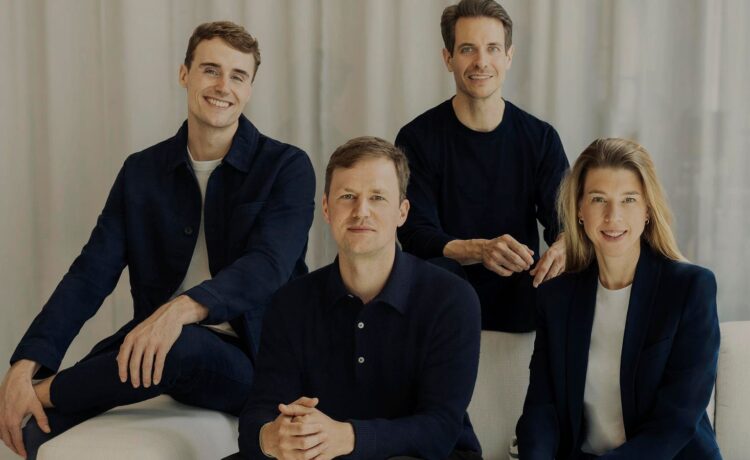The Magnetic Capital team say they are pioneering a new approach to VC in Europe
“World class venture capital is an artisan craft,” says David Rosskamp, managing partner of Berlin-based Magnetic Capital. It’s essentially a dig at the industrial-scale venture capital operations now run by some of Europe’s largest institutions – such organisations operate with large and undisciplined portfolios, Rosskamp suggests, and can’t possibly stay close to the businesses in which they have invested.
By contrast, Magnetic’s funds are deliberately small. Its latest vehicle, still raising money, is aiming to pick up no more than €120 million. That approach enables the venture capitalist to run focused portfolios of early-stage investments in the themes that interest it most.
It’s an interesting argument. Investors in venture capital funds have sometimes been underwhelmed by the results, but the sector has also had some big hits. Many will question the ability of a relatively unknown – and small-scale – firm to capture the attention of investors. Founders, too, will want to be sure that they are getting the right backer.
Rosskamp, however, is convinced that Magnetic resonates with investors, as well as businesses looking for funding support. “Being disciplined is key to outperformance in venture capital, an important fact that often gets lost in Europe,” he argues. A German national who spent much of the early part of his career in the US before returning to Europe in 2015, Rosskamp adds. “Our team works through the partners, not through an inflated organisation.”
It’s an approach that Rosskamp describes as a “1970s-style” approach to venture capital, with partners engaged in deep-level discussions about the direction of their portfolios. “We think in first principles,” he explains. “What are the necessary building blocks of an inevitable future in our themes and target sectors, and how can we help create them?”
If that sounds rather highbrow, the type of themes on which Magnetic is currently focused are more practical. This latest fund is investing in companies in three specific areas, Rosskamp explains. Resilience and security, climate, and modernisation of core industries are its chosen areas of focus. These don’t sound especially distinctive, but Rosskamp says the difference is that his fund finds very early-stage firms and looks for businesses that go beyond narrow technology-driven solutions to a model with much broader applications.
Examples already in the portfolio include Project Eaden, a German company that has developed production technology for plant-based meat fibres, Pluto Markets, a Danish neobroker operating outside the single currency zone and Trawa, a German new-generation energy supplier selling to small businesses. The fund is also investing in a defence company focused on anti-drone technologies and a technology company specialising in small and medium-sized enterprises.
At Trawa, CEO David Budde says the company chose to work with Magentic on the basis of its experience working with other start-ups. “We set out to create a new generation power supply company for Europe – this is not your usual software company,” he explains. “No investor team impressed us as much as Magnetic, which had a long history of creating some of the upcoming startup champions.”
Rosskamp insists Magnetic has a track record of being an early mover in sectors that later attract broader investor attention. “We search for theme setters before the theme is there,” he says. “We have a history of firsts, as Europe’s first venture investors in fields such as synthetic biology, decentralised networks and circular commerce.”
These are bold claims, but Rosskamp says the performance data from previous funds supports his value proposition. He points to hits with early investments in companies such as Grover, Gorillas, Komoot, Filecoin, Stacks and Reebelo.
At one of those companies, Grover, founder Michael Cassau, says Magnetic’s support was instrumental in the business’s success. “You need an investor partner who thinks in a highly entrepreneurial way, like a co-founder, and in larger contexts,” he says. “I think that the Magnetic platform is unique in Europe for these qualities.”
Still, Europe’s venture capital sector has developed rapidly in recent years, providing more competition than ever before. Bringing a US-style venture capital approach to Europe may no longer be enough to secure competitive advantage in a market where other investors have also evolved. “There is still a white space for us,” Rosskamp says, but Magnetic will have to prove it can offer more than just bold talk about the cerebral and sophisticated nature of its approach.
There is certainly no lack of ambition. “We only back seriously ambitious attempts to change lives for millions of people in Europe,” says Rosskamp. He promises: “Our work will create serious, large and lasting answers to Europe’s biggest challenges.”

















